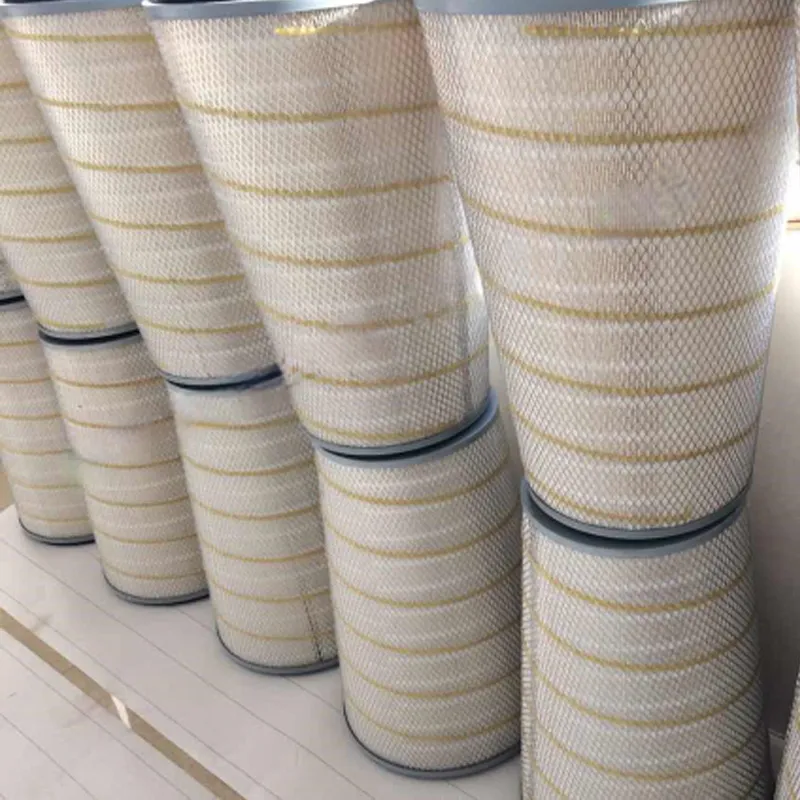 Tel:
+8615930870079
Tel:
+8615930870079
okt . 13, 2024 10:12 Back to list
Pleated Filter Solutions for Efficient Dust Collection in Industrial Applications
Understanding Dust Collector Pleated Filters A Key Component for Clean Air Systems
In various industrial and commercial settings, maintaining a clean air environment is critical not only for compliance with health and safety regulations but also for ensuring the efficiency of operations. One of the essential components in dust collection systems is the pleated filter. This article will explore the significance of dust collector pleated filters, their design, benefits, and maintenance.
What is a Dust Collector Pleated Filter?
A pleated filter is a type of air filter that uses a series of pleats or folds to increase the surface area available for dust and particulate matter capture. These filters are generally made from synthetic or cellulose materials, which are treated to enhance their dust retention capabilities. The pleated design allows for more media to fit within a compact space, increasing the filter's efficiency and lifespan compared to traditional flat filters.
How Do Pleated Filters Work?
The operation of pleated filters in dust collectors is relatively straightforward. As air passes through the filter, particulate matter is trapped in the pleats, preventing it from re-entering the environment. The increased surface area provided by the pleats allows for higher dirt-holding capacity, meaning these filters can operate effectively over extended periods before requiring replacement or cleaning.
Advantages of Pleated Filters
1. Higher Efficiency Pleated filters can achieve greater filtration efficiency due to their larger surface area. This characteristic enables the capture of fine dust, smoke, and other pollutants that might escape traditional filters.
2. Longevity Thanks to their design, pleated filters often last longer than non-pleated options. They can hold more dust without a significant increase in pressure drop, meaning less frequent replacements and lower maintenance costs.
3. Cost-Effectiveness While the initial investment might be higher than standard filters, the long-term savings in maintenance and replacement costs can make pleated filters more economical for many businesses.
dust collector pleated filter

4. Improved Air Quality By effectively capturing a wider range of particulates, pleated filters contribute to better indoor air quality. This is crucial in industries such as pharmaceuticals, food production, and manufacturing where air purity is essential.
Choosing the Right Pleated Filter
When selecting a pleated filter for a dust collector system, several factors must be considered
- Filter Material The material should be suitable for the specific type of dust and particulate matter in the application. Some materials are more effective for fine particles, while others may work better for larger debris.
- MERV Rating The Minimum Efficiency Reporting Value (MERV) rating indicates the filter's efficiency. Higher MERV ratings mean higher filtration efficiency, but they may also result in higher pressure drops, which can affect the system's energy consumption.
- Size and Configuration The filter must fit correctly in the dust collector. Ensure to check the dimensions and any specific requirements for the filter housing.
Maintenance and Replacement
To ensure optimal performance of pleated filters, regular maintenance is crucial. This includes monitoring the differential pressure across the filter, which indicates the level of loading. Visual inspections can also identify signs of wear or damage. Depending on the specific application, filters may need to be cleaned or replaced every few months to a year.
Conclusion
Dust collector pleated filters play a vital role in maintaining clean air in various industrial environments. Their design attributes, including increased surface area and higher capacity for capturing particulates, make them a preferred choice for many businesses aiming for high filtration efficiency and long-term cost savings. By understanding the characteristics and benefits of pleated filters, organizations can enhance their dust collection systems and contribute to a healthier, cleaner workplace. Investing in quality pleated filters is not just a regulatory compliance measure; it is a commitment to environmental stewardship and employee well-being.
-
Nano Fiber Technology: Revolutionizing Cartridge Dust Collector FiltersNewsAug.06,2025
-
How Activated Carbon Air Cartridges Eliminate OdorsNewsAug.06,2025
-
Dust Filter Cartridge Handling Fine Particulate MatterNewsAug.06,2025
-
Cartridge Dust Collector Filter for Welding Fume ExtractionNewsAug.06,2025
-
Activated Carbon Filter Cartridge Effectiveness Against VOCsNewsAug.06,2025
-
Activated Carbon Air Filter Cartridge Benefits ExplainedNewsAug.06,2025

 Email:
Email:





